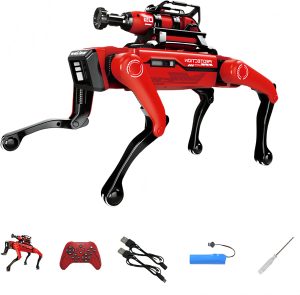Onton Secures $7.5M to Broaden AI-Driven Shopping Platform Beyond Furniture

Image Credits:Onton
Major Tech Companies Embrace AI in Shopping
In recent years, leading tech companies such as OpenAI, Google, and Amazon have amplified their focus on artificial intelligence (AI) not just for content generation, but also for enhancing the shopping experience. These giants are investing significantly in AI assistants capable of researching new product categories and providing tailored recommendations to consumers. This trend marks a pivotal shift in how customers discover and shop for products.
The Rise of AI Product Discovery Startups
The influence of AI on shopping is further exemplified by the emergence of numerous startups like Perplexity, Daydream, and Cherry, which have dedicated their efforts to product discovery through AI. Their innovations have led to an increase in AI adoption among shoppers, aiming to enhance the decision-making process. Among these startups, Onton (formerly known as Deft) is making significant waves as an AI-powered furniture shopping platform. Since its inception, Onton has experienced remarkable growth, expanding its user base from 50,000 to over 2 million monthly active users, and facilitating millions of searches and image generations.
Funding Boost and Future Plans
Capitalizing on its success, Onton recently announced a $7.5 million funding round led by Footwork. Other participating investors include Liquid 2, Parable Ventures, and 43, bringing the startup’s total funding to around $10 million. This funding will be used to diversify its offerings, including plans to expand into apparel and eventually consumer electronics.
The rebranding from Deft to Onton earlier this year reflects a desire for greater clarity and the ability to secure a premium domain name. Co-founder Zach Hudson emphasized that despite the capabilities of large language models (LLMs) in inferring user intentions, they still fall short in addressing key issues in e-commerce. Notably, the time consumers take to make purchasing decisions has significantly increased, underscoring the need for more effective solutions.
Neuro-Symbolic Architecture: The Core Technology
Onton’s unique approach hinges on what’s known as neuro-symbolic architecture. This technology effectively mitigates the “hallucination” problems commonly seen in LLMs. By providing more logical and contextual search results, Onton can offer insights based on real-world knowledge that may not be explicitly included in a product’s description.
For instance, Hudson points out that if a user is searching for pet-friendly furniture, Onton can determine that polyester furniture is generally more resistant to stains and scratches. This capability stems from an accumulation of knowledge gained through each user interaction, allowing the system to evolve and enhance its offerings over time.
Addressing Diverse Product Terminology
A common pain point in online shopping is the variability in product naming across different platforms. Onton’s AI model is designed to recognize and reconcile these discrepancies. This means that users can expect more relevant results even if the products they seek are listed under multiple names on different websites.
Enhanced Features for Informed Decisions
To further support small and long-term shopping decisions, Onton has introduced multiple input methods. Users can now upload images or provide prompts to model their vision for their home or office setup, allowing Onton to find suitable furniture options.
Moreover, Onton provides an infinite canvas for image generation. This feature allows users to overlay existing images with potential purchase options for ideation. Users can even submit photos of their own rooms and request furnishing ideas tailored to their specific spaces.
Moving Beyond Chat-Only Solutions
Rather than sticking strictly to a chat-based interface, Onton aims to present various pathways for consumers to find exactly what they need, even if their descriptions are not perfectly articulated. This innovative approach has reportedly enabled Onton to convert customers 3–5 times more effectively than traditional e-commerce platforms, as trust in the underlying data enhances the shopping experience.
Preparing for Expansion into Apparel
Hudson noted that the technological advancements and interface enhancements have made it easier for Onton to venture into the apparel market. The startup is actively compiling its catalog for this category and plans to launch it imminently. In this competitive landscape, Onton will face challenges from established players like Daydream, Aesthetic, and Style.ai, all vying to redefine fashion e-commerce.
Team Growth and Future Objectives
Since its launch, Onton has rapidly expanded its workforce, growing from three full-time employees in 2023 to ten currently, with plans to hire additional engineers and researchers to reach a team of 15 people. This growth reflects the startup’s commitment to refining its platform and broadening its capabilities, positioning it effectively for the evolving digital shopping landscape.
Conclusion
The confluence of AI technology and e-commerce is reshaping how consumers approach shopping, making it more streamlined and efficient. Companies like Onton are at the forefront of this transformation, leveraging innovative approaches to make product discovery not just smarter but also more user-friendly. The outlined strategies and upcoming product expansions position Onton and similar startups as key players in the future of online retail, paving the way for a more personalized and informed shopping experience.
Thanks for reading. Please let us know your thoughts and ideas in the comment section down below.
Source link
#Onton #raises #7.5M #expand #AIpowered #shopping #site #furniture





